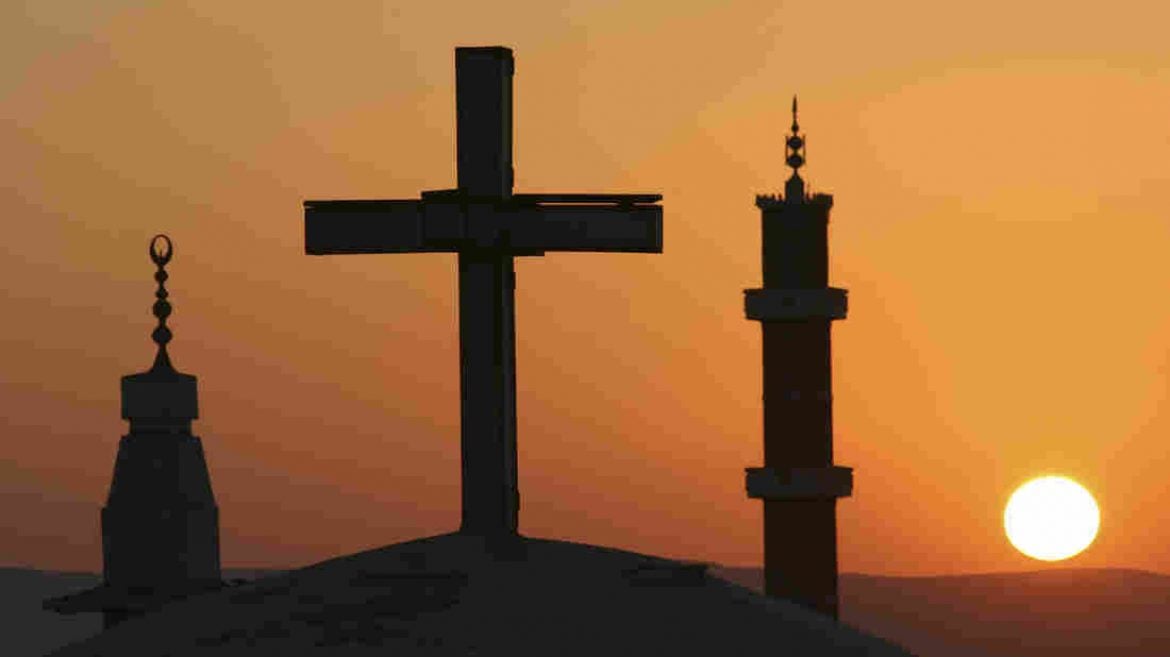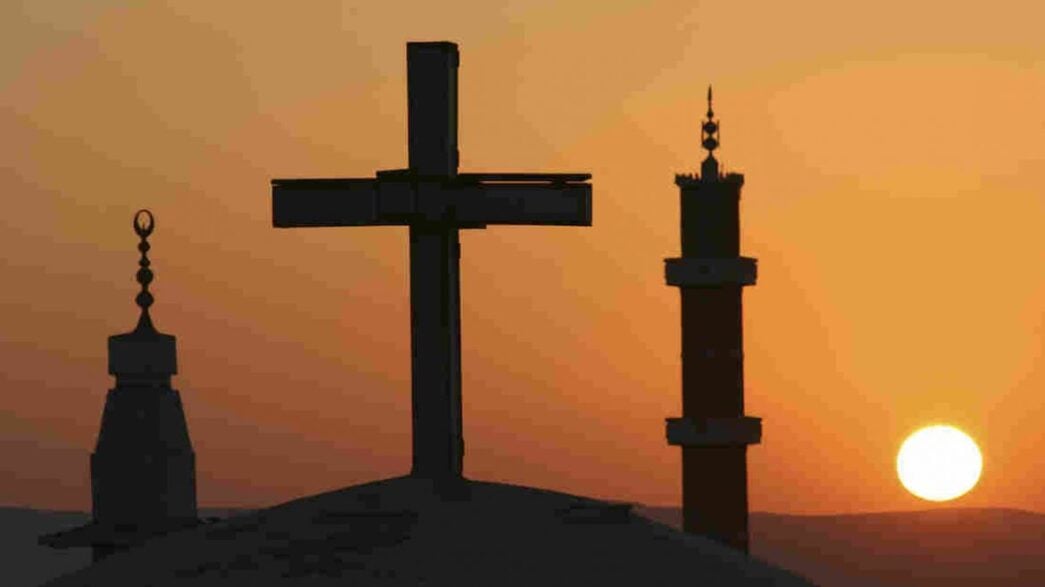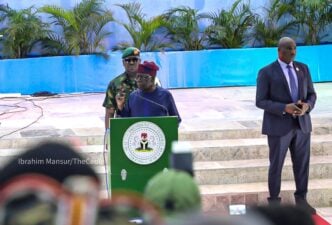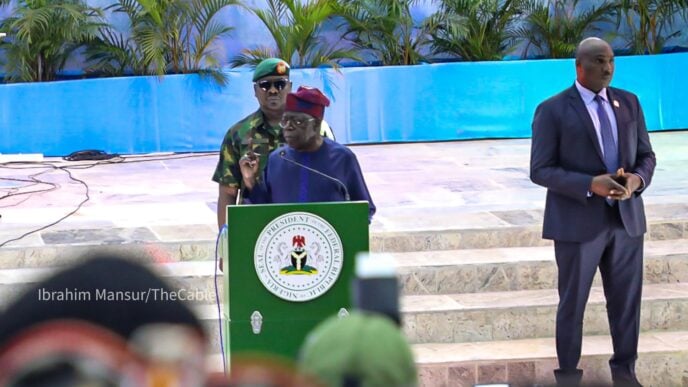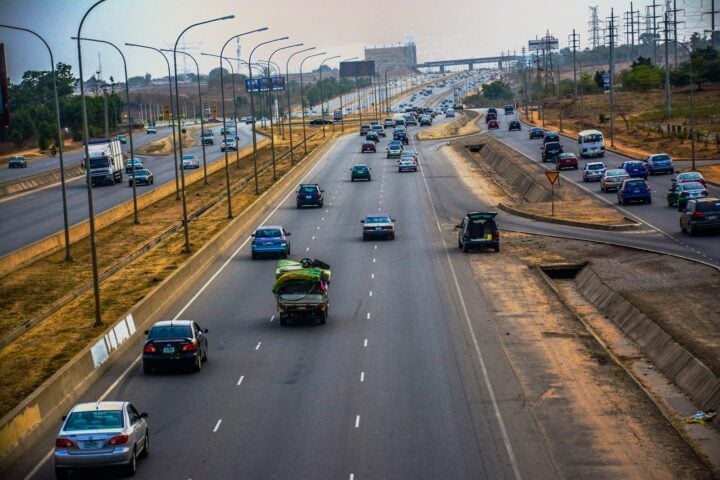BY OPATOLA VICTOR
Every few years, Nigeria finds itself at the centre of one international debate about religious persecution or the other, and each of those times, we always manage to turn the mirror away from ourselves. We deflect, deny, and dramatise, but never confront. The latest controversy over religious persecution and the United States’ designation of Nigeria as a “country of particular concern” is no different. Instead of quiet reflection, we have reached for our favourite tools: nationalism, defensiveness, and propaganda. We will end up wasting this crisis, and learn nothing again.
America’s position or designation is not the problem. The real issue is the Nigerian state and its foundation, its dishonesty, its hypocrisy, its selective empathy, and its inability to confront the truth about who we are and what we have become. For too long, Nigeria has avoided defining itself: are we a secular nation, a religious state, or a confused pretender to both?
For decades, for reasons both political and cynical, Nigeria has danced around the issue of freedom of religion, treating it as a taboo rather than a moral and constitutional duty. We call ourselves a secular nation, but in practice, we are anything but secular. Our constitution gives with one hand and takes with the other, contradicting and lying against itself.
Advertisement
We must ask ourselves: are we truly a secular nation, or merely a country pretending to be one? Can a state that sponsors pilgrimages, funds religious institutions, and embeds religion in public policy still claim neutrality? Can a government that refuses to punish religious violence still claim fairness? These are the uncomfortable questions we keep dodging.
John Rawls, in his popular work, Theory of Justice, posits that justice is fairness. Can Nigeria, as a country and all the 36 states, boldly come out to say they have treated various religious beliefs with fairness, and not use the instrumentality of the state to elevate one over the other? This writer used to believe that literacy and education would gradually wean Nigeria off its favourite nemesis of religion, but apparently, even the so-called educated and literate are more complicit.
This moment could have been different. Nigeria could have seized it to examine its soul, to confront our entrenched hypocrisy, but as always, we will likely waste it. We will drown it in incoherent nationalistic speeches, politics and denials. We will turn it into another talking point rather than a turning point.
Advertisement
Nigeria must choose a path; it is free to choose to be a religious state or a secular state, but woe betide our hypocrisy; that same hypocrisy that has consistently fueled and given confidence to religious violence, because deep down, the perpetrators are convinced of little or no consequences.
Courage is not only in removing fuel subsidy or imposing taxes; courage also lies in moral honesty; the courage to say, “we have failed to protect our people,” and to act on it.
Our failure is not only in security; it is also structural and philosophical. A nation cannot protect what it doesn’t believe in. When students lynched their teacher, Christianah Oluwatoyin, over religion, no one was held accountable; that is a failure of the state to uphold freedom of religion. When Deborah Samuel was burnt alive by fellow students within a tertiary institution over an allegation of blasphemy, and leaders issued “polite” and “politically safe” condemnations but no true prosecution, what message does that send?
When communities are attacked for belonging to a particular faith, and the perpetrators walk free, that is persecution, no matter how the government tries to name it otherwise. The truth is that Nigeria has long abdicated its moral duty to protect life without bias. It has reduced the sanctity of life to geography, religion and demography. Nigeria treats religion as a legitimate basis for violence, and religious identity as a justification for state inaction.
Advertisement
We cannot continue to lie to ourselves. Freedom of religion in Nigeria exists only in theory. The Nigerian state has not built the political, legal, or moral framework to defend that freedom in reality. When religion becomes an instrument of political power, persecution becomes inevitable. And when the state refuses to call that persecution by its name, then the state itself becomes part of the machinery that sustains it.
The Americans have spoken, perhaps with their own interests in mind. But their voice should not distract us. It should remind us that every time Nigeria is called out, our first instinct is to deny, defend, or deflect, never to introspect. We hide behind the old refrain that “both Muslims and Christians are victims.” Yes, that is true. But it is not the whole truth. The deeper truth is that our government has been consistently unwilling to confront the forces, political, religious, and cultural, that fuel these killings.
If we do not go back and do what we ought to have done all these years, and fully confront and define the issue of freedom of religion and state secularism, then chances are we may be back again where we are.
This moment could be different. The American designation could force the national conversation we desperately need. It could make us finally confront our contradictions, examine our failures, and commit to justice and fairness.
Advertisement
The first step to healing is honesty and brutal self-assessment. Nigeria must name its own sins and stop the hypocrisy and pretence. We must build a state that can be independent of religion, not one that hides behind it. Nigeria, as a country, must finally pick a side and decide whether it wants to be a secular state or a religious one; either way, the hypocrisy must stop, and the constitution and state policy must reflect it.
The constitution must stop speaking from both sides of its mouth. Justice must be blind to faith, and punishment must be swift against those who perpetrate religious intolerance.
Advertisement
Opatola Victor, the national coordinator of Lawyers for Civil Liberties, can be reached via [email protected]
Advertisement
Views expressed by contributors are strictly personal and not of TheCable.
